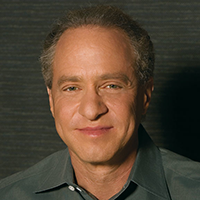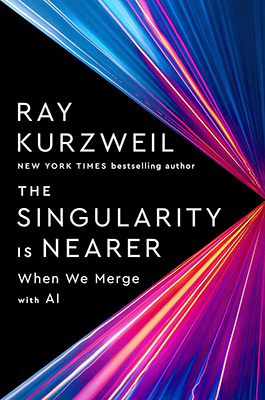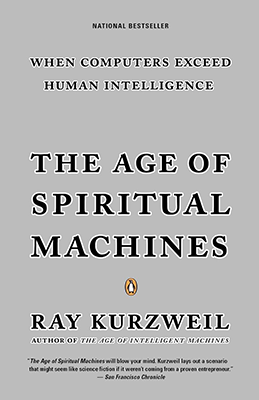
Ray Kurzweil
Ray Kurzweil is a prominent American inventor, futurist, and author known for his predictions about artificial intelligence (AI), technological singularity, and the future of humanity. Here are the key points from his biography:
Early Life and Education: Raymond Kurzweil was born on February 12, 1948, in Queens, New York City. He showed an early aptitude for science and technology, developing an interest in computers and inventing at a young age. He attended the Massachusetts Institute of Technology (MIT), where he earned a Bachelor of Science degree in Computer Science and Literature in 1970.
Inventions and Innovations: Kurzweil has been a prolific inventor and entrepreneur throughout his career. He invented the first CCD flatbed scanner, the first commercial text-to-speech synthesizer, and the first print-to-speech reading machine for the blind. His inventions have significantly impacted fields such as optical character recognition (OCR) and speech recognition technology.
Authorship: Ray Kurzweil is also a noted author, having written several books that explore the intersection of technology, artificial intelligence, and human biology. His most famous works include “The Age of Intelligent Machines” (1990), “The Age of Spiritual Machines” (1999), and “The Singularity is Near” (2005), where he discusses his theory of technological singularity—the point at which artificial intelligence will surpass human intelligence.
Futurism and Predictions: Kurzweil is known for his optimistic predictions about the future of technology and human enhancement. He believes in the exponential growth of technology and its potential to solve major global challenges, including aging and disease.
Directorship and Consulting: Ray Kurzweil has held advisory roles and directorships at various technology companies and organizations. He has been a director of engineering at Google since 2012, focusing on machine learning and language processing.
Recognition and Awards: Kurzweil’s contributions to technology and futurism have earned him numerous awards and honors, including the National Medal of Technology and Innovation (1999) and induction into the National Inventors Hall of Fame (2002).
Philosophy and Transhumanism: Kurzweil is associated with the movement known as transhumanism, which advocates for the enhancement of human capabilities through technological means. He explores ethical and philosophical implications of emerging technologies in his writings and speeches.
Ray Kurzweil’s visionary ideas and technological innovations have made him a significant figure in discussions about the future of artificial intelligence, human-machine interaction, and the potential for technological advancement to transform society. His work continues to influence debates about the ethical, social, and economic implications of rapid technological progress.


